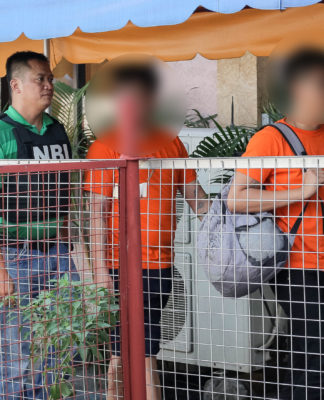FOLLOWING its exit in the ranking of the world’s top universities, UST hosted this year’s edition of a conference organized by the London consultancy behind the widely followed survey, in a bid to get recognized by peers overseas.
The Rector admitted that UST, despite its reputation as Asia’s oldest university, was practically unheard of abroad.
In an apparent change in the University’s attitude toward such surveys, Fr. Rolando de la Rosa, O.P. said UST hosted the conference not to get higher in the rankings of Quacquarelli Symonds (QS), but to establish networking with premiere universities abroad.
“We lack networking with other universities. We’re well-known in the Philippines, but only very few universities abroad really know us, and the [QS world and Asian university rankings] criteria include peer evaluation,” the Rector said in the conference.
The latest QS survey released in September saw UST drop out of the Top 600. Meanwhile, the University of the Philippines (UP), fell to No. 332 from No. 314 in 2010. Ateneo de Manila fell to No. 360 from No. 307 while De La Salle University dropped to the 551-600 bracket from the 451-500 bracket.
UST officials have long criticized the QS methodology, and the University at first did not participate actively in the surveys.
That changed on Nov. 16 to 18, when UST opened the Quadricentennial Pavilion to 800 participants of the 8th Quacquarelli Symonds-Asia Pacific Professional Leaders in Education (QS-Apple) conference and exhibition.
The conference presented “strategies to become world-class universities.” One of the workshops discussed the methodology of the QS Rankings, as well as the impact of rankings on universities, students, and parents.
Nunzio Quacquarelli, founder and managing director of QS, said international students place a high importance on the opinions of future employers when choosing their universities, as shown by surveys.
“QS World University Rankings give prospective international students access to a powerful aggregation of those views, and our employer opinion survey is a unique aspect of the QS methodology,” Quacquarelli said.
In the 2011 QS World University Rankings, international faculty and students were also included in the criteria, accounting for five percent each.
Third-world education
The conference also tackled problems of higher education in poor countries.
Nigel Healey, QS-Apple 2011 academic advisory committee chair, told the Varsitarian that many students in developing countries today are unable to finish primary or secondary education because of financial incapacity.
“[The Philippines has] a huge number of private institutions, universities, and colleges trying to make higher education accessible to students without the government funding,” Healey said.
“In the Philippines, the state has limited fiscal capacity and cannot fund all the university places demanded,” Healey said. “Our 2011 location in Manila provides a unique opportunity to explore issues of social justice and access to higher education [in the Asia-Pacific region].”
He cited the success of public universities from neighboring countries like China, South Korea, and Malaysia, whose governments had invested heavily in higher education.
Healey added that this year’s conference was a good opportunity for schools to discuss how their educational systems could be improved.
“The purpose of the conference is to bring people together from across Asia-Pacific so they can share their experiences and exchange ideas on how to improve research, get more international teaching, and to make higher education accessible to developing countries,” Healey said.
Meanwhile, QS Asia managing director Mandy Mok said this year’s three-day conference gave opportunities for Philippine higher education leaders to “benefit from the QS-Apple learning and networking experience.”
“We believe that through such international exposure and networking, more Asian institutions will rise in global recognition and world stature,” she said.
On the first day of the conference, commissioner Nenalyn Defensor of the Commission on Higher Education discussed the aims of higher education in the Philippines.
“World-class universities are not only characterized by the high concentration of excellence, talent, and infrastructure,” she said. “They also generate multi-disciplinary research, provide the focal clusters of economic activity, and deliver highly skilled people to the global market.”
UST professors invited to present papers in the international conference include Jeremaiah Opiniano, Robert Montaña, Alvin Ang, Lucila Bance, Noel Asiones, Catherine Cordova, Chin Uy, and Allan de Guzman.
About 100 speakers from 22 countries presented 70 papers in six parallel sessions, discussing the internationalization of the student body and curriculum, building “world-class” universities in the Asia-Pacific, transnational education and international partnerships, the global higher education market, and social justice and access to higher education.
‘Unique’ system
Concluding that Philippine higher education is “perhaps one of the most unique in the world,” De Guzman pointed out during the closing session that there is a predominance of the private sector in higher education.
Educational institutions in the country include 2,180 colleges and universities, of which 108 are state universities and colleges (SUCs). Most of the educational institutions are technical high schools converted into state colleges and universities through legislative actions, “whether they met the standards or not,” De Guzman said.
De Guzman criticized the undue competition posed SUCs on private schools, noting that the former were primarily established to “improve access to education in areas where there are few private schools.”
“There is [now a need] to rationalize appropriations of SUC’s based on their mandate, functions, and operations as higher education institutions,” he said. Rafael L. Antonio and Bernadette D. Nicolas
















